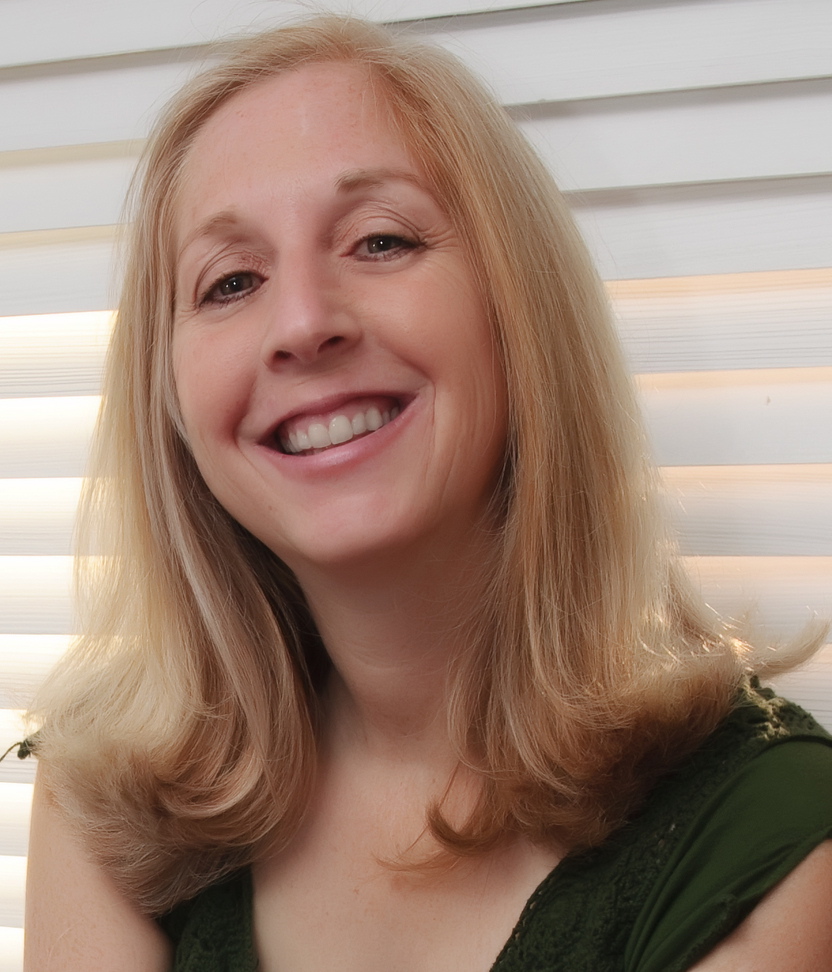The two most common questions I hear from fiction writers considering blogging books are:
- Should I blog full chapters?
- Should I blog my completed novel?
To the first question, I typically answer, no. If you blog full chapters, you are just serializing your novel, not blogging it. Blogging a book involves publishing it in post-sized pieces (250-500 words at a time).
To the second question, I normally answer, yes, if you want to create a readership (an author platform) for your book or attract a publisher, and you don’t just want to self-publish, blogging your book after you’ve written it can be a good idea because is should create a built-in readership for your ebook or pbook—and possibly attract a publisher for the book. However, it’s not really blogging a book in the pure sense of the term; you aren’t writing, publishing and promoting your book one post at a time; you are juts publishing and promoting it one post at a time.
 Wicked Good, a first novel by sisters Amy Lewis Faircloth and Joanne Lewis, is about a single mother, Archer, struggling to raise her adopted son, Rory, who has Asperger’s syndrome (on the autism spectrum). The novel took them three years to complete, and after having a difficult time finding a publisher, they decided to create a blog and post chapters on the Internet accompanied by photos of places in Maine and Massachusetts that they visited to research the book. The blog gained followers, and after just two months, a publisher from a small press contacted the sisters. Now the entire book is published as an e-book (March 2011) and in paperback (August 2011).
Wicked Good, a first novel by sisters Amy Lewis Faircloth and Joanne Lewis, is about a single mother, Archer, struggling to raise her adopted son, Rory, who has Asperger’s syndrome (on the autism spectrum). The novel took them three years to complete, and after having a difficult time finding a publisher, they decided to create a blog and post chapters on the Internet accompanied by photos of places in Maine and Massachusetts that they visited to research the book. The blog gained followers, and after just two months, a publisher from a small press contacted the sisters. Now the entire book is published as an e-book (March 2011) and in paperback (August 2011).
The blog, wickedgoodthebook.blogspot.com, contained all chapters of the novel Wicked Good. There are 80 chapters, and the sisters blogged a new chapter every two to three days, as well as other features. The sisters explained, “As we got more readers, we began posting a new chapter every day as the demand became high. Once we were published, we were asked by our publisher to take the chapters down, which we did. However, the additional content is still on the blog.” The additional content includes photographs, a contest, ‘Rory says,’ reviews, mock interviews by Paul Bunyan, and other posts.
Some of the original blog content is now on Joanne Lewis’ site (www.joannelewiswrites.com), which they use to post articles and announcements. “We do not post every day on our blog. Most of our traffic is driven to our website,” they said.
When did you begin blogging your book?
November 15, 2010
How did you choose your topic?
We had written a book together called Wicked Good. It took us three years to write the novel. While writing Wicked Good, we never considered blogging it chapter-by-chapter. Our initial goals in writing Wicked Good were three-fold: (1) to do something together, (2) to have fun, and (3) to get it published traditionally. When we were done writing the book, we started querying agents and publishers. That’s when the fun stopped, so we decided to blog the book chapter-by-chapter. At that time, it was more important to us to keep enjoying ourselves and to get Wicked Good out there to all readers we could reach than to experience the pressure of trying to get an agent or a publisher.
What market research did we do before beginning your blog?
None. We started on TypePad, which had a cost associated with it and didn’t feel user-friendly. We switched to Blogspot, and then we were rolling!
After this experience, would you consider blogging a book from scratch?
We are glad we finished the book before blogging it. We are working on the second book in the series, called Wicked Wise, and if we were to decide to blog chapters from this book (or any other book we wrote), it would only be once we had the novel completely finished, including final edits.
How long did it take you to gather readers?
We gathered blog readers slowly. The first time we were noticed by people that were not family or friends was when a fellow blogger asked to interview us for her blog. That occurred in December, about five weeks after we had begun blogging Wicked Good chapter-by-chapter. Readership gained slowly over the first two months of posting the chapters. Our family and friends were very loyal and kept following us. Facebook and Twitter were instrumental in getting the word out about our blog and book. Then, our followers began to tell their friends about the novel. Soon, people were e-mailing and commenting that they couldn’t wait for the next chapter. At that point, we happily offered to send them the entire manuscript; which many people accepted although some liked the adventure of waiting for the next chapter to be posted on the blog. By February, we were starting to get readers that were third generation, i.e. not a friend or family member and not a friend of a friend.
What did you do to drive traffic to your blog?
We drove traffic to our blog by posting updates on Facebook and Twitter. Also, every time we posted on our main blog (www.wickedgoodthebook.blogspot.com), we also posted on our other blogs at the following sites: BlogHer.com, AustismHangout.com and FWA.net (Florida Writer’s Association). The entire time, we had four blogs going at once, all with the same content. We also surfed the web to find other bloggers and organizations that might be interested in our novel and sent them e-mails or commented on their blogs, telling them we liked what they were doing and hoping they would check out our blog.
How did your blog-to-book deal come about?
We are not sure how our first publisher was driven to our blog, but they found Wicked Good after all the chapters had been posted (80 chapters). They sent us an e-mail saying they would like to publish our novel. We didn’t take the request seriously. Two weeks later, they e-mailed us again and wrote, “What do we have to do to get you to let us publish Wicked Good?” Our interest was piqued, and ultimately we reached an agreement with this small, independent press.
What one or two things we you attribute to your blogging success?
1. a well-written and marketable book, and 2. luck.
What advice would you give to bloggers wanting to blog a book?
- Have the book done, including final edits.
- Have more than one blog with each blog site potentially reaching different audiences.
- Personally respond to all of your readers when they comment and/or e-mail you. (This builds a fan base that will help you over the long-run.)
- Search the web for other bloggers or organizations that might be interested in your content and ask them to check out your blog.
- Have patience.
- Have no expectations other than to have fun.
What is the most important thing a blogger can do to get noticed in the blogosphere?
Have well-written and marketable content that evokes emotion in your readers and that you are proud of.
About the Authors

 Joanne Lewis makes her living as an attorney and follows her dreams as a writer. She and her sister, Amy Lewis Faircloth, are the co-authors of the award-winning novel Wicked Good. Joanne is also the author of Make Your Own Luck, a Remy Summer Woods Mystery,” and The Lantern, a Renaissance Mystery (release date November 2012), as well as other novels and novellas.
Joanne Lewis makes her living as an attorney and follows her dreams as a writer. She and her sister, Amy Lewis Faircloth, are the co-authors of the award-winning novel Wicked Good. Joanne is also the author of Make Your Own Luck, a Remy Summer Woods Mystery,” and The Lantern, a Renaissance Mystery (release date November 2012), as well as other novels and novellas.
Do you need help blogging your book or booking your blog?
Not sure if a blog-to-book coach is right for you?
Click here to schedule your free 15-minute coaching session now.
Ask some questions. Get some advice. Find out if coaching is right for you.

Hi Nina, Thanks for the great blog post. Of course, I am somewhat biased however your post is concise, well organized and reader friendly. I bet you are a fantastic writing coach. Joanne
Thanks, Joanne, and I appreciate your participation on the blog. My readers will learn a lot from your experience.
I’m blinded by the brilliance of simply labeling my CONCLUSION. You outed me, I always scroll to the conclusion before deciding to commit to reading the whole post. It never occurred to me that I’m not the only one doing that. So, just like making site navigation easy so visitors can find what they’re interested in quickly—make the content structure work to induce a reader by highlighting the content’s value in my conclusion and letting their FOMO propel